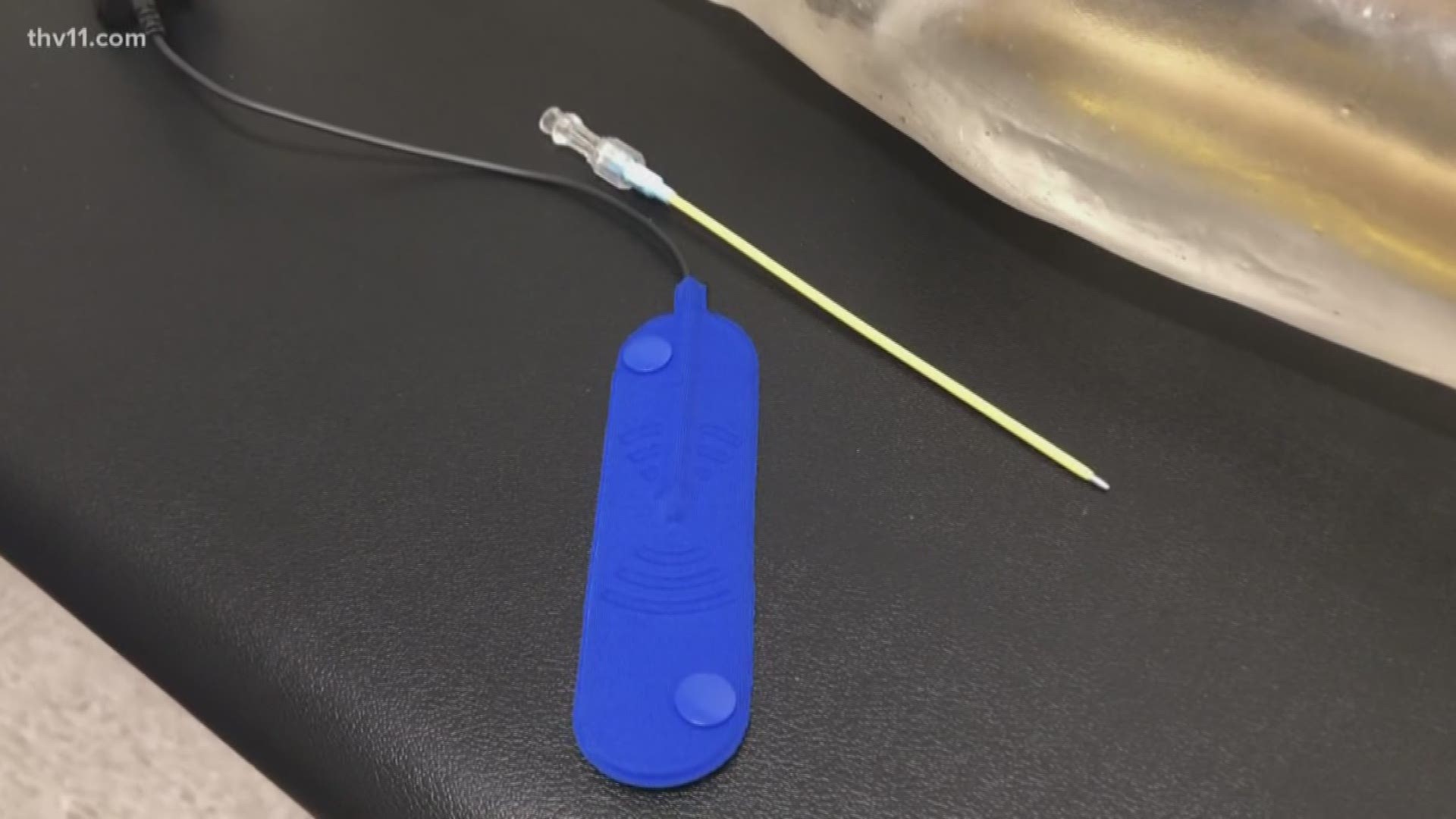LITTLE ROCK, Ark. — Doctors tell us that 95% of all medical conditions have one common trait: pain. Relieving that pain, for better or worse, is at the heart of the current opioid crisis.
With expanded knowledge of the dangers of pain pill addiction, there's a rush to find a better way. A tiny, wireless technology may be the answer.
"Each day, almost 115 Americans die in the United States because of opioid overdose," said Dr. Meraj Saddiqui, one of the men and women working in the difficult world of pain management at the local branch of Pain Treatment Centers of America. "There are a lot of technologies available that can help patients improve the quality of life without compromising their health."
Dr. Saddiqui has gone to the leading edge to bring one of those technologies to Arkansas with peripheral nerve stimulation. In layman's terms, the Stimware Freedom System (SCS) acts as kind of like a pacemaker, only for your nerves instead of your heart.
"The technology helps patients control pain by changing the pain signal at the basic nerve level," Dr. Saddiqui said.
Using a model made of thick gel encasing actual cadaver bones, the doctor shows how a thick gauge needle is inserted into the area where the pain is originating from. (Topical anesthetic is used. The needle could make even the bravest among us quiver.)
A wire, tipped by a microchip and a series of electric leads slides through the needle within a centimeter of the nerve. The needle is withdrawn leaving the leads in place.
During a trial period, a temporary wired battery device is attached to the wire. If the patient gets relief, doctors sew the wire into the body and a wireless device is programmed to send signals to chip and leads.
Every time the device is activated, it basically tells the nerve "stop telling the brain that you're in pain."
"For me, it's life changing," said David Cooper, a patient who has endured 41 knee surgeries and offered to sing the device's praises. "Throughout the years, I've tried everything from acupuncture to hypnosis, I mean literally everything. They say to expect like 50% relief. Mine right away was like 80%."
Prescription drugs were also a part of Cooper's therapy, but patients like him can't get enough pain killers anymore.
The PNS system offers targeted relief and nothing to get you addicted and a device that looks like a key fob that charges like a cell phone.
"I control it," Cooper said. "If it's going to start hurting or I'm doing something that's going to hurt, I dictate when it goes on and when it doesn't."
Other companies have similar products, but they require a battery actually go in the body. That can lead to pain and the brochure for the device says they are limited on what parts of the body they can treat.
Stimwave won't have the market cornered for long, because the demand for relief is so high.
"We need to invest and do research how to treat chronic pain safely," Dr. Sadiqqui said. "Giving opioids - a lot of opioids - is not the answer."
Sadiqqui said Medicare, Medicaid, and most commercial insurance carriers will cover the cost of the device and having it implanted. They usually insist on that trial period and also check that other nerve blocking techniques have been tried without success.

